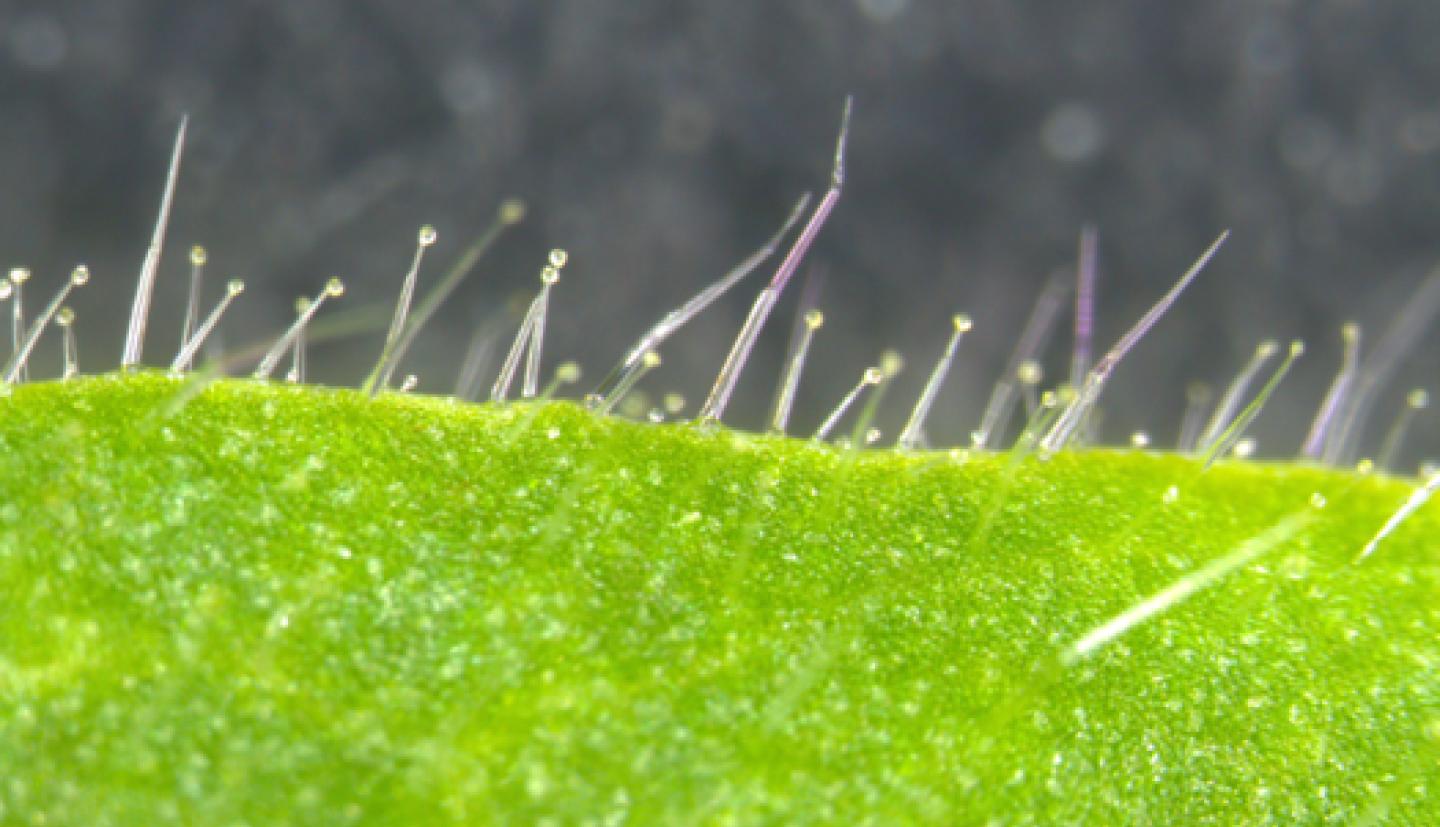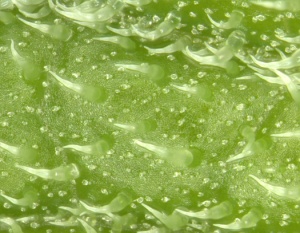Plants produce more than a million small, nonprotein molecules that they use for communication, defense and other purposes. While many of these have been adopted by humans for use in medicine, nutrition and agriculture, the vast majority have yet to be studied.
Gaurav Moghe, assistant professor in the Plant Biology Section of the School of Integrative Plant Science, has undertaken characterization of acylsugars, a family of compounds found only in Solanaceous plants, which include crops such as potatoes, tomatoes and peppers. These compounds play an important role in plant self-defense, with different combinations effective as natural pesticides against insects and fungi. Research into this family of compounds could provide important new insights into plant breeding and human medicine.
In a study published Sept. 12 in the journal eLife, lead author Moghe and colleagues report on the biochemical characterization of acylsugars produced by over a dozen solanaceous plants, revealing high levels of diversity among the different species. Acylsugars have a variety of structures, made by different enzymes working together in a series of biochemical reactions. By establishing which of these enzymes are present in different solanaceous plant species, the study shines new light on how these compounds may have evolved.
“Plant specialized metabolic pathways are factories of biological innovation,” Moghe said. “The chemical novelty created by these pathways help plants move into new habitats and respond to their ever-changing environment. Understanding how this innovation occurs in the living world can not only help our efforts to engineer synthetic pathways but also help provide a sense of wonder that is so essential for the exploration of new frontiers in science.”
Knowledge of acylsugar biosynthetic pathways can be used to synthesize novel products with medical and economic importance, such as sustainable pesticides and pharmaceuticals that treat cancer and heart conditions.
As he begins his research program at Cornell, Moghe will expand this work by studying similarly diverse, lineage-specific metabolic pathways in different plant families. For example, he is applying integrative experimental and computational methods to analyze a class of plant defense compounds in morning glories called resin glycosides, which are structurally analogous to acylsugars. Moghe says ”personalized agriculture” is the future of plant science, and an integrated understanding of plant physiology – from individual gene function to network evolution – will enable creation of designer plants suited to specific environments.
Research on acylsugars has a long history at Cornell, having been studied by former faculty member John Steffans, and by Martha Mutschler in the Plant Breeding and Genetics Section, who has developed tomato lines selected for high acylsugar content.
This research was funded by the National Science Foundation, the National Institutes of Health and the U.S. Department of Agriculture.
Magdalen Lindeberg is assistant director at the School of Integrative Plant Science and senior research associate in the Section of Plant Pathology and Plant-Microbe Biology.







